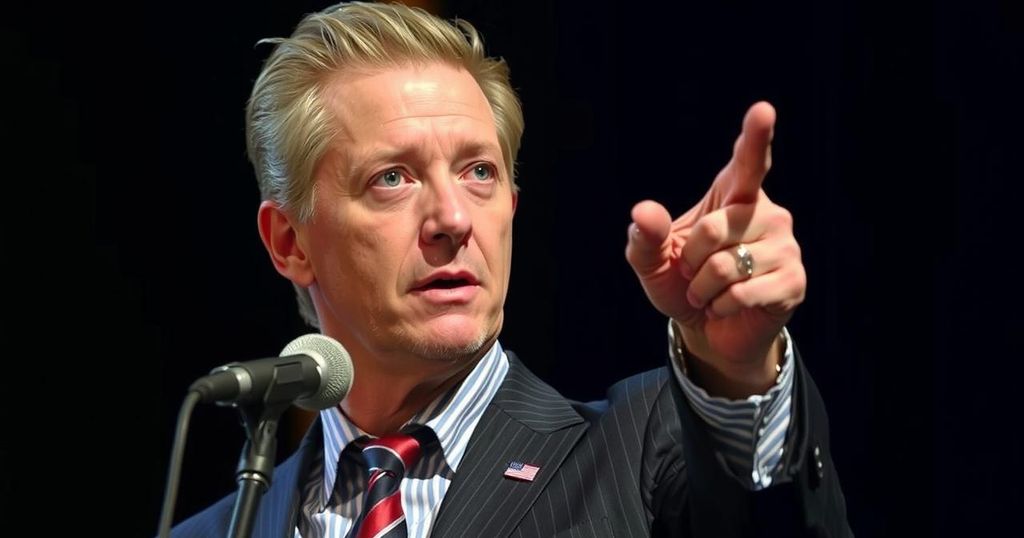Elon Musk is financially backing Donald Trump’s campaign through controversial and possibly illegal tactics, including cash giveaways and misleading advertisements targeting voters in swing states. His involvement raises severe ethical issues regarding the influence of wealth in American politics, especially post-Citizens United ruling, and suggests a desire for personal and financial gain in return for support.
The recent developments surrounding Elon Musk’s financial involvement in the upcoming United States election have raised significant ethical concerns. Musk has taken to employing unconventional and arguably unlawful methods in an attempt to secure a victory for his ally, Donald Trump. His pro-Trump political action committee, named “America Pac,” announced a daily giveaway of $1 million to individuals who sign a petition advocating for free speech and gun rights. Previously, Musk had offered monetary incentives to registered voters in pivotal swing states, such as Pennsylvania, raising questions about the legality of these actions. Political experts have expressed that Musk’s strategy may border on illegal vote-buying, drawing parallels to questionable practices observed in foreign countries. In addition to cash incentives, Musk’s political maneuvering involves a more insidious approach. The Future Coalition Pac, financed by Musk, has been disseminating conflicting messages about Vice President Kamala Harris’s policies in critical swing states. These targeted advertisements aim to sway, and possibly manipulate, Arab, Muslim, and Jewish voters by presenting contradictory narratives regarding Harris’s stance on Middle Eastern issues. The backdrop of this circumstance is the Supreme Court’s 2010 Citizens United ruling, which facilitated an influx of corporate and special interest funding into elections, strengthening the capacity of wealthy donors to influence the political landscape. Musk’s substantial financial contributions to Trump’s campaign, totaling approximately $75 million, illustrate the invasive role that money plays in American politics. Notably, other major donors, such as Miriam Adelson, have invested significantly, presumably in exchange for influence over Trump’s policies, particularly concerning Israel. Musk appears to seek a reciprocal relationship with Trump where he may acquire financial gains and enhanced power. His potential role as “secretary of cost-cutting” indicates his eagerness to direct government funds towards his own ventures. Observations surrounding Musk suggest that his policies may prioritize personal interests over public welfare, raising alarms regarding the implications of a Trump administration influenced by such a billionaire.
The subject matter discussed in this article revolves around Elon Musk’s controversial association with the funding of political campaigns in the United States, particularly his financial backing of Donald Trump’s campaign ahead of the upcoming election. This situation is set against the backdrop of the Citizens United ruling, which has permitted enormous financial contributions from individual donors and corporations in American politics, thereby intensifying the role of money in elections.
In summary, Elon Musk’s financial strategies to aid Donald Trump’s campaign highlight significant ethical dilemmas in the political system of the United States. His methods, which include direct cash payments and manipulative advertising tactics, may cross legal boundaries and showcase a concerning power dynamic between wealthy individuals and electoral outcomes. As the election approaches, the implications of such practices raise critical questions about the integrity of democratic processes and the influence of money in politics.
Original Source: www.theguardian.com







